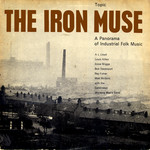| The Iron Muse | |
|---|---|
 | |
| Studio album by Anne Briggs, Bob Davenport, Ray Fisher, Louis Killen, A. L. Lloyd, Matt McGinn, The Celebrated Working Man's Band | |
| Released | March 1963 |
| Recorded | 17 November 1962 |
| Genre | Industrial folk |
| Length | 48:39 |
| Label | Topic |
| Producer | A. L. Lloyd [1] : 30 |
The Iron Muse is the title of two albums of industrial folk music released by Topic Records. Subtitled A Panorama of Industrial Folk Music, the first album came out in 1963 as a long-play vinyl record, and the second in 1993 as a CD.
Contents
- Vinyl album
- Tracklist
- Singers and musicians
- CD album
- Tracklist 2
- Singers and musicians 2
- Source albums
- Reception
- Initial reception
- Analysis and commentary
- See also
- Notes
- References
- Further reading
- External links
The 1963 album received several favourable reviews at the time, [2] [3] [4] [5] and is referred to in the book accompanying Topic Records' 70th anniversary boxed set, Three Score & Ten , "as one of the most stimulating and satisfying records in the Topic catalogue." [1] : 30 [a]
Later commentary has focused on how the songs were chosen for inclusion in the vinyl album, [6] the extent to which some of them are truly traditional, [7] and the role played by the album in the second British folk revival. [8]
